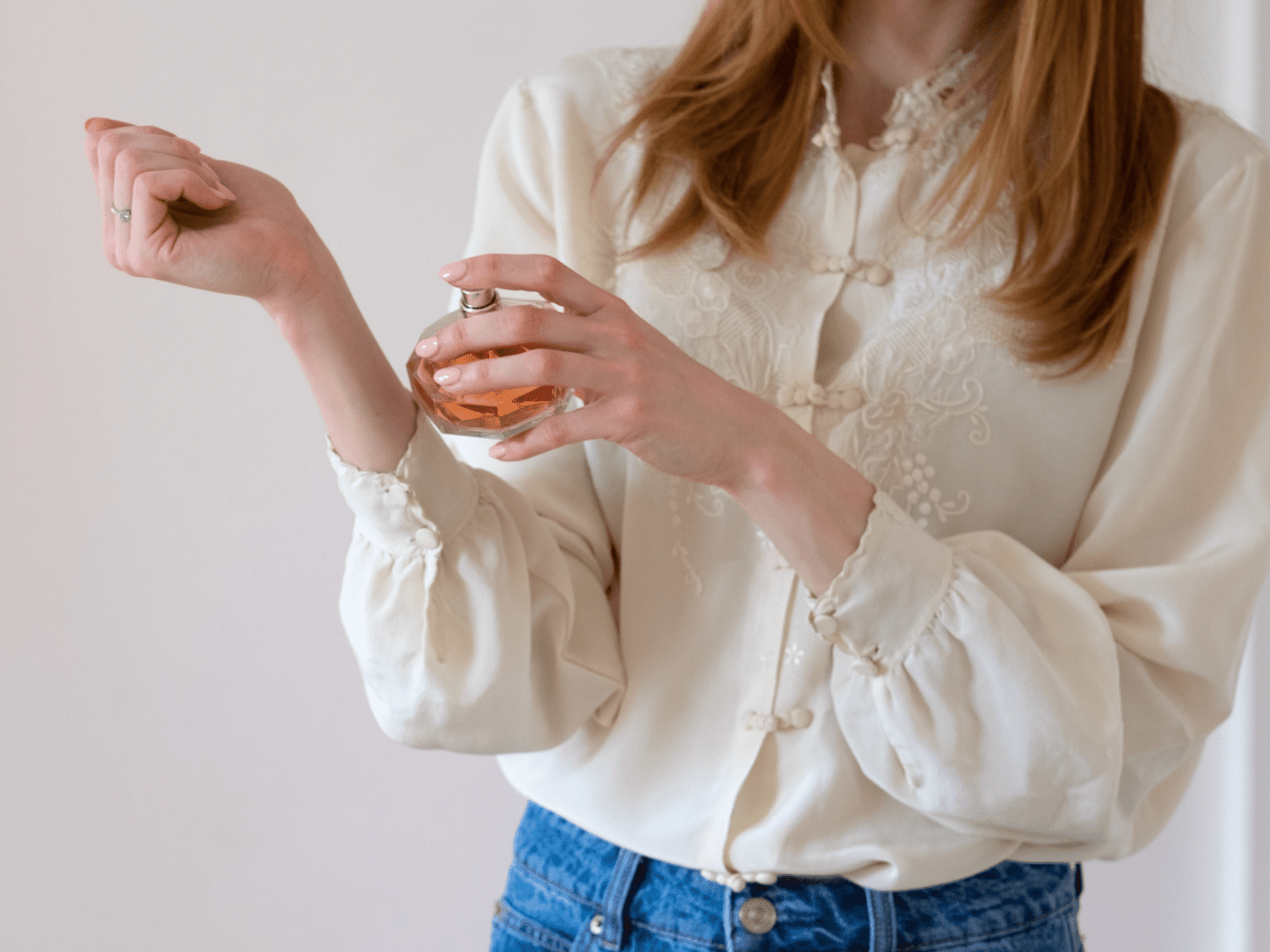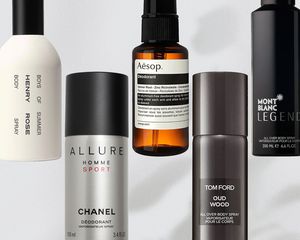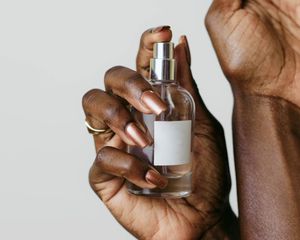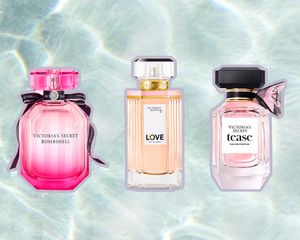
Stocksy
Consider this our PSA to stop being precious with your perfume. When we find a fragrance we love—and pay a pretty penny to bring it home—we naturally go into full preservation mode, doing everything to stretch the number of spritzes left in that beloved bottle. But the most disciplined amongst us may not be coming out ahead. In fact, all our reluctance to wantonly use that favored fragrance could be doing us a disservice in the end because perfume does actually expire. Certain behaviors or storage solutions can even alter the chemical makeup of a perfume, making it degrade and go off sooner.
Ahead, fragrance experts and a cosmetic chemist break down how to tell when your perfume has expired. Plus, they share a few tips on how to extend a fragrance's shelf life.
Meet the Expert
- Amandine Pallez is the senior creative director at Bvlgari Parfums.
- Pia Long is a perfumer and cofounder of Olfiction Limited.
- Ginger King is a cosmetic chemist and owner of the product development firm Grace Kingdom Beauty.
Does Perfume Expire?
Yes, perfume does expire—but the expiration timing depends on a few factors, such as ingredients and time of opening. Most fragrance manufacturers will recommend tossing your bottle after anywhere from one to three years (check your label), but since fragrance doesn't expire in the same sense that food does, it's sometimes okay to keep using a bottle for four, even five years.
“In my experience,” says, Bvlgari Parfums senior creative director, Amandine Pallez, “perfumes do not fade in intensity, but the scent tends to become oxidized, sour, sometimes acidic or metallic or with notes of plastic.” In other words, too much oxygen inside your perfume bottle can alter the molecules of the fragrance, which can affect the overall scent.
“The oxidation can come from the top notes like citrus, aromatics that are at risk, but also by the dry-down of the fragrance,” explains Pallez. Different formulas are more prone to oxidizing, which is why some perfumes last longer than others. “I have personally noticed that Chypre fragrances with a high concentration of Patchouli tend to risk a scent’s longevity,” she says.
The longest-lasting aromatics have a lot of chemical stability. “Woodsy notes, amber, and leather are quite stable, even after three years," adds Pallez.
Long says that you can store your citrus-based scents in the fridge to help slow this down. "The more oxygen above the juice, the faster the fragrance will oxidize, so saving the last drops of a favorite perfume is a bad idea," she says, recommending that you can decant into a travel spray once your bottle is mostly air.
How to Tell If Perfume Is Expired
"There is usually a noticeable change in the odor of the top note (this is often where the changes occur first), says perfumer, Pia Long, "and there may be a change in color of the liquid as well." Cosmetic chemist, Ginger King, adds, "Most fragrances have a yellowish tint to it (the color of oil) and when it goes bad, it can turn a darker brown."
Do Different Types of Perfume Expire Faster?
As mentioned previously, different scent families—such as citrus notes—are prone to faster rates of oxidation. The actual perfume formulation, however, may have a greater impact on how quickly the scent will go bad. Perfumes with high alcohol content tend to last the longest as the alcohol prevents the aromatic molecules from oxidizing. You might think of alcohol as an ingredient to avoid in beauty products, but when it comes to fragrance, au contraire. Alcohol is the key preservative for the integrity of a perfume. “These are typically colognes or the eau de toilettes with 90 percent alcohol,” says Pallez. “The less concentrated it is, the best longevity you can expect. A fragrance is usually 70 to 90 percent alcohol, which provides preservative support.”
Below are the types of fragrances, listed in descending order from highest alcohol content to least:
- Eau de Cologne
- Eau de toilette
- Eau de parfum
- Perfume extract
- Eau fraiche
Byrdie Tip
Clean and alcohol-free fragrances; oil-based fragrances; and perfumes with patchouli or citrus notes tend to expire (or lose intensity) the fastest.
The role of alcohol is key and has been used as a preservative in perfume since Antiquity. “The Venetians invented [this technique] when they started trading their ‘made in Italy’ fragrances across Europe,” explains Pallez. “Their scents had a new longevity feature, which was not the case with the previous fragrances that were made with oil.” The rest of your fragrance’s formula, notes Pallez, is the concentrate made up of “dozens of different ingredients, natural or synthetic molecules, in which we add a stabilizer and some UV filters to further maximize the longevity and the stability of the fragrance.”
And although clean fragrances can be appealing for those looking for a nontoxic beauty routine, natural perfumes tend to lose intensity quickly. “If a fragrance does not contain alcohol, which acts as a preservative, it will have a shorter shelf life,” says Pallez. She adds, “Natural molecules are typically less stable than synthetic.”
How to Make Your Perfume Last Longer
- Keep away from light: Although it might look cute to place your perfume bottles on your window sill, this is the worst place to store fragrance if you want to preserve its integrity. Pallez says that light will break down the molecules of a fragrance making its composition unstable and prone to oxidation.
- Keep away from heat (and humidity): Heat will also break down fragrance molecules and alter their chemical makeup. Pallez suggests you keep the fragrance below 15 degrees Celsius or 59 degrees Fahrenheit. Long says to steer clear of storing fragrances in the bathroom, too.
- Keep using it until the bottle is empty: “When half empty, the oxygen inside increases the risk of alteration,” says Pallez. If you have an extensive perfume wardrobe, Long says to "rotate your collection so that the lowest juice bottles get used up first and the rest should wait in a cupboard or a drawer."
- Keep in original bottles: Frequently decanting fragrances into atomizers or smaller, travel-friendly tubes may be more practical than lugging around a full-size bottle, but it won't do you any favors in terms of longevity as it exposes the fragrance to oxygen.
- Store in a cool place: To keep your fragrance at the ideal temperature, the fridge is a good option. However, Pallez has a caveat. “The fridge is not the perfect place if the whole family keeps on opening its door, constantly lighting up the inside.” You could wrap your fragrance in aluminum foil, or better yet, try the freezer. As previously stated, most perfumes contain alcohol so those won’t freeze, plus it feels refreshing at a cooler temperature.
How Long Do Unopened Perfumes Last?
Unopened bottles stored in a cool, dark dry place can last for years (anything from a couple of years to a couple of decades), depending on the perfume and storage conditions. "Beware the 'vintage' find as the top notes are usually off by the time you get it," says Long. "Once you are using a bottle, use it or lose it."
Byrdie Tip
An opened bottle of perfume can last anywhere between three months to three years, depending on the scent’s construction and what the packaging is like, and, of course, how it’s stored when in use.
Is Using an Expired Perfume Safe?
It depends. According to Long, certain oxidized products can become skin irritants and some might even start to stain clothes where they didn’t before. "Always do a patch test somewhere like inside of your wrist to check and if you’ve not reacted in 24 hours, apply cautiously at your own risk." King echoes the words of caution and adds that when applied to the skin, "the decomposed compounds may lead to allergic reactions upon direct contact." If the juice is not staining fabric but you’re still not sure about putting it on your skin, try scenting your clothing with it. "A scarf, handkerchief, inside hem of a skirt or trousers, can be a nice way to wear perfume," says Long.
The Final Takeaway
Taking care of your fragrance is essential to preserving its longevity. Plus, you can get the most out of your scent and make it last longer on your skin by applying it correctly. Avoid rubbing fragrance on pulse points, as your body heat will evaporate some of the notes. Instead, apply on moist, damp skin to lock in scent as you savor every last drop.


